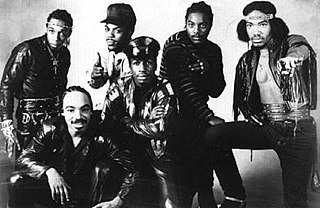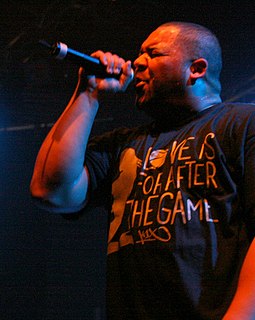A Quote by Grandmaster Flash and the Furious Five
Hip-hop has always been chronologically misunderstood. Too many times, people are hearing the story from the second floor. Nobody's heard the story from the basement. If hip-hop was a cake, all I can tell you is the eggs, the flour, the sugar, the vanilla - the ingredient years.
Related Quotes
Somewhere down the line, the evil ones stole the legacy of hip hop and flipped it to a corporate type of hip hop. They decided to tell everybody 'Well, this is what hip hop is,' instead of coming back to the pioneers and getting the true definition of what hip hop is and what it was and what we been pushing for all these years.
My definition of hip hop is taking elements from many other spheres of music to make hip hop. Whether it be breakbeat, whether it be the groove and grunt of James Brown or the pickle-pop sounds of Kraftwerk or Yellow Magic Orchestra, hip hop is also part of what they call hip-house now, or trip hop, or even parts of drum n' bass.
After many years of hip-hop as a nation we should have the sophistication to accept that their are distinctions between the corporate manifestation of hip-hop, sold as a commodity and package with sensational race, sex and violent imagery, and the hip-hop culture that kids are living everyday at a local level, which often doesn't dabble in that terrain.



































